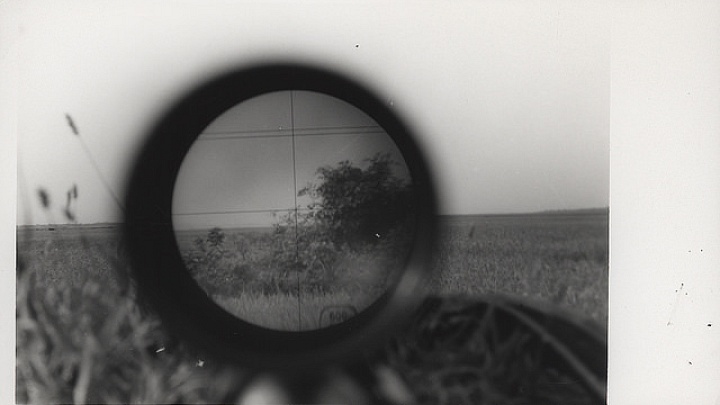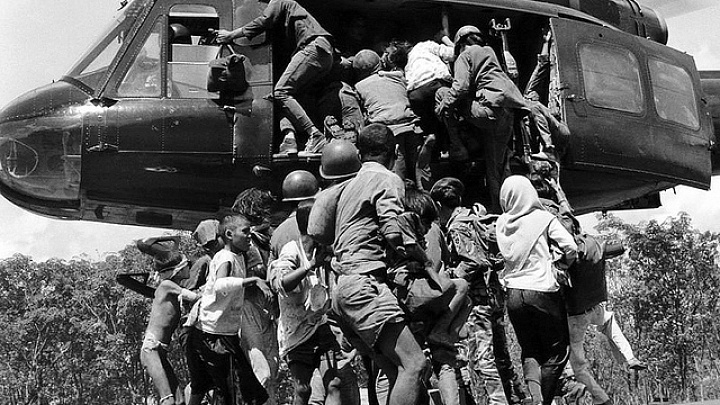Time magazine recently awarded Person of the Year honors to “the Ebola Fighters.” Bravo…good choice. As I’ve written elsewhere, it is right to honor those who volunteer to fight this disease as heroes, because they are. I’m glad that Time has recognized their willingness to put service before self.
While Time celebrates those who volunteer to serve, the magazine should have devoted a line or two to some who had little choice in the matter—the thousands of U.S. military members who have deployed to west Africa. In September, the president of Liberia, Ellen Johnson-Sirleaf, wrote to President Obama with a desperate request for assistance. “Without more direct help from your government, we will lose this battle against Ebola,” she pleaded. “Only governments like yours have the resources and assets to deploy at the pace required to arrest the spread.” What the Liberian president surely knew is that only the U.S. military had the capability to respond to save her country.
At the same time, another respected voice in the Ebola fight, Médecins Sans Frontières (Doctors without Borders) took the unusual step of requesting logistical and engineering help from the U.S. military. President Obama made a difficult call, and he ordered the U.S. military to join the government’s intervention effort, knowing this would mean sending thousands of personnel to the area and exposing them to both Ebola and Malaria.
Since that decision, over 2900 men and women have deployed to conduct Operation Unified Assistance, and they have made a tremendous difference in Liberia. They have set up a full hospital dedicated to the treatment of emergency workers and erected 10 other Ebola treatment facilities (the last of these will be completed by the end of December). There now appear to be sufficient beds available in Liberia to handle all patients, which is a major improvement from September, when hospitals were overwhelmed.
These men and women have also constructed an air transportation system linking the region to the rest of the world. This system includes a major hub in Senegal, with numerous airplanes and helicopters delivering people, equipment, and supplies to the affected region. This system fills a critical gap, as only one commercial airline continues to fly in the region.
Another crucial development is the increased capacity to test people for presence of the disease. There was a time when test results took days or weeks to be returned, weighing down the entire effort. USAID Director Rajiv Shah explains that mobile labs run by the U.S. Navy have drastically cut that time “from seven or eight days down to five or six hours.” At one point, the U.S. military operated seven of the nine mobile labs in the Monrovia area. Nancy Aossey, CEO of the International Medical Corps, explains the importance of these labs: [T]he U.S. military went in, and as a result of the quick testing they were able to do, we were very quickly able to determine who needed to be isolated and who didn’t.”
At some point, the demand for the very heroes that Time has honored may outstrip the supply.
Additionally, U.S. forces have provided both training and encouragement to their counterparts in the Liberian military. Upon her return from the region, Laurie Garrett of the Council on Foreign Relations observed that the “U.S. military seemed to immediately know what they should do, and they charged into the ground and they bivouacked alongside Liberian military…no fancy accommodations…and in the process, they’re really affecting the quality of the Liberian military.”
In short, the American people can be proud of what their military has done to support the Ebola fight. That fight is far from over, however. Celebration of the heroes who fight this disease cannot be conflated with a sense that Ebola has been defeated, or even contained. It has not. New Ebola cases are emerging every day in Liberia, and Ebola is still spiraling out of control in Sierra Leone. The disease may still become endemic or spread to other areas. One terrible scenario remains a possibility: the disease could skip continents into another developing country. There, the disease may remain undetected long enough to establish a foundation. An Ebola outbreak on two continents would be a stern global test. At some point, the demand for the very heroes that Time has honored may outstrip the supply.
President Johnson-Sirleaf has warned the world, “this disease respects no borders.” That is why the Ebola Fighters—including those in the U.S. military—truly fight for all of us.
[Photo source: Flickr Commons]
Colonel Clint Hinote, USAF, is a 2014-2015 Military Fellow at the Council on Foreign Relations. He recently commanded the 8th Fighter Wing at Kunsan Air Base, Republic of Korea and served as the U.S. Forces Korea Area VI commander for more than 7,000 Air Force and Army combat ready and forward deployed personnel.The conclusions and opinions expressed are this own and do not reflect the official position of the U.S. government.



When I read about the selection for Persons of the Year, I also felt our servicemen should have been included in this honor. Our servicemen are volunteers as well–enlisting in our armed forces willingly to go wherever and whenever they are needed.